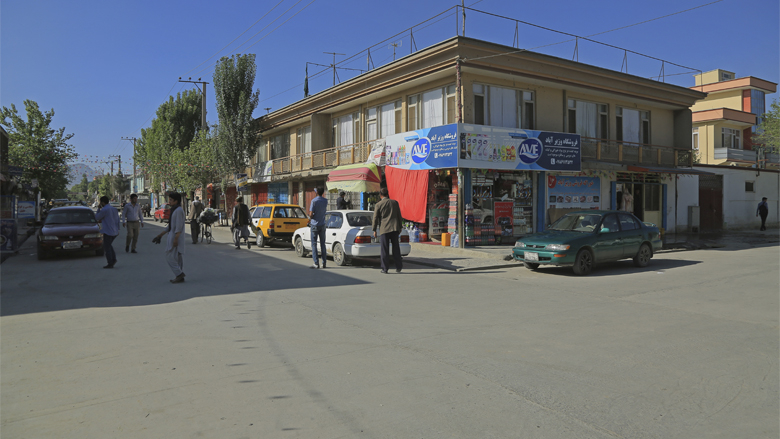By Azadah
The mass arrests of women under the Taliban’s pretext of an “improper hijab” is not the only fear that Parisa has to deal with every morning when she leaves her home for work.
The 37-year-old sits idly behind the desk in her shop with no customers. Since the Taliban crackdown on women’s “clothing” began in January, Parisa says her days mostly pass like this because fewer girls are women are leaving their homes.
The mother-of-three has been selling women’s accessories in a Kabul shopping center for four years.
“These imposed restrictions completely prohibit women and girls from going outside. Their families don’t allow them to go out,” she says.
“There are no sales. We are paying the business rent, electricity, and water bills from our own pockets.”
Since the Taliban started their mass detentions of women in Kabul and several other provinces for “improper hijab”, there have been numerous reports the women are being beaten and harassed, and their families are extorted for money.
Some women’s rights groups are describing it as the “abduction” of women.
One of Parisa’s tailoring workshops in Kabul has already been closed through Taliban restrictions. Her husband, who used to be employed under the previous government of Afghanistan, is unemployed.
Their only income is the empty shop.
Sales have dropped from 10,000 afghanis (US$130) to 100 afghanis (US$1.30) per day – “and sometimes not even that”, Parisa says.
“If it continues like this, I’ll have no choice but to close the shop. But this shop is my only source of income, which the Taliban are now taking away from me with their restrictions. I don’t know what to do,” she says.
“Women are now completely excluded from society. They used to at least go out shopping, but now they are not even able to do even that. There is no one listening to us.”
Kabul becomes a man’s world
Zubair, 53, has been selling cosmetics since his teenage years in Kabul’s Lis-e-Maryam area. He says he’s never seen the economy in the state it is today.
“It’s been a month since we’ve sold nothing. There’s no way,” he says.
“We should collect all the women’s clothes and replace them with men’s clothes. The work of the shopkeepers in this area suffered a lot from the arrest of the girls from Khairkhana. Now, most of the time, men are buying the clothes for their wives.”
Zubair says that the Taliban have threatened all the Kabul shopkeepers with forced closure if they sell “immodest” clothing such as jeans and women’s “thin” party dresses.
Ruqia Sadat, 21, owns a perfume shop in a Kabul shopping center. She describes Kabul as becoming completely male.
“When I come to the store in the morning, I don’t see any girls or women on the street or in the city. I feel very alone. I’m worried the Taliban will arrest me in the store,” she says.
“I am alone in this shop with my colleague, who is a gentleman, and I hide most of the time when the Taliban forces come, especially the vice and virtue police.”
She says the pressure on women is more than people can imagine.
“Even more girls left their jobs after these [latest] restrictions were imposed. If this process continues, I’m sure it will be kicked out too, because the customers are all men. Women are not allowed to go out,” she says.
If it weren’t for her economic stress, Ruqia says she also wouldn’t go to work because of her extreme fear of being detained.
“Terror in the city”
Sitara has run a shop selling women’s accessories and cosmetics in the heart of Kabul for five years. But this year, sales have been decimated.
The fallout has meant Sitara has fired three staff.
“All the accessories I have in my shop belong to women and girls, and all my customers are women. But these days we aren’t selling. It’s because of these restrictions that have created terror in the city,” says Sitara.
She used to sell up to 10,000 afghanis (US$130) a day, now she’s lucky to make 1000 afghanis (US$10).
“The ‘abduction’ of girls and women has had an unfortunate effect on sales. Now I must pay the shop rent, electricity, and water bills all by myself,” she says. “This shop is my only way of earning money, which has become a concern for me and my family these days.”
Women imprisoned at home instead
Nazanin, 19, tells Rukhshana Media via phone that her family no longer let her leave home.
Nazanin was a social activist before the Taliban returned to power in August 2021 and spent most of her days outside the house.
“I have not been allowed by my family to go out of the house for a month now,” she says.
Before the mass detentions of women, she taught private tuition, but her family no longer allow her to continue this work.
It’s a similar story for Sara. She says most of the time when she wants to go out, she faces strong opposition from her family.
Any necessities she requires are bought for her by her brother or mother.
“I don’t know what the situation is like outside at all,” she says. “I’m bored and depressed at home.”
*Shop names and locations are not revealed for security reasons








